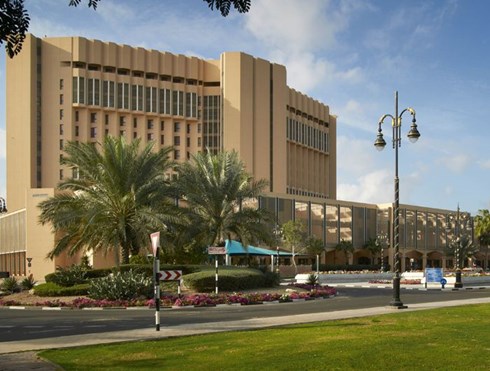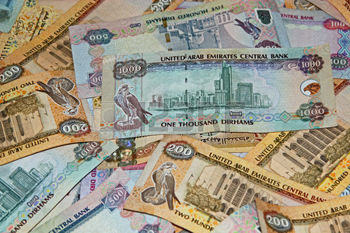Working in Dubai and Fujairah
Why the UAE?
The UAE is an amazing place to live and work. For those who love to work in a multicultural environment, this is absolutely ideal for you. The UAE offers many progressing career opportunities, as well as the incredible history for you to experience and explore. There are an increasing number of people migrating to this region in the search for good job opportunities to live an abundant life with security.
The UAE offers world class infrastructure and quality products that enhance lifestyle and let you live your life as you want to. All Emirates offer zero tax for everyone regardless whether you run your own business or are employed. It is not only the land of opportunities, but a safe and peaceful place to raise a family. Travellers and migrants have unlimited fun activities to enjoy any time even during the night. There is such a huge variety of activities and events available for people of all age groups.
Located in the heart of the Middle East, the city of Dubai is found within the emirate of Dubai. It is one of seven Emirates making up the country of the United Arab Emirates. It has a population of over 2 million and is the largest city in the UAE, followed by Abu Dhabi. While proud of its Islamic culture and religion, it is one of the most cosmopolitan and tolerant cities in the region. Here you find people from all over the world living and working together in the city.
Currently recruiting for:
- OBGYN x 4
- Anaethesiologist
- Dermatologist
- Radiologist
- Ultrasonographer
Locations Needed:
- Dubai
- Fujairah
- Dibba
Sunny blue skies and high temperatures can be expected most of the year. Rain falls on an average of only 25 days per year, mainly in winter (December to March). It rarely rains very heavily or for long periods. Rarely when it does rain, the heavy rainfall can really take its toll on the city. In winter there are occasional sandstorms. The emirate of Dubai is currently ruled by Sheikh Mohammed bin Rashid Al Maktoum, vice president and prime minister of the UAE (who is considered the driving force behind Dubai’s exponential growth) and his brother Sheikh Hamdan bin Rashid Al Maktoum, the UAE minister of finance and Industry.
Tips before you move to Dubai:
Ensure that you have all important documents such as qualification certificates, marriage certificates, kids birth certificates etc. attested in your home country. This can be a lengthy process requiring legal and UAE foreign embassy input. Notify your bank & get your financial affairs in order. Check with your local tax office if you have to declare any earnings accrued while working in Dubai
If you have kids, start researching schools as soon as possible. We can assist you with this. The earlier your child's name is on the waiting list, the better chance you will have in securing a place. You must be aware that several prescriptions medications are banned in the UAE- especially anything containing codeine or temazepam, and a zero tolerance policy operates with regards to recreational drugs. Transportation is definitely a consideration when moving to Dubai. Many people buy or rent cars and as a result road networks can get very congested- especially during rush hour. Petrol is relatively cheap, and with a steady stream of expats moving on to other countries, second hand cars can be easily picked up in an 'almost new' condition.
Dubai's taxi service is relatively cheap, reliable and extensive. It is difficult to go anywhere in the city and not be able to flag down a taxi within a matter of minutes. Dubai Metro opened in 2009. It is a driverless, fully automated metro rail network spanning the city of Dubai. It remains a popular mode of transport for those travelling to the business districts and shopping malls. Apartments next to Metro stops tend to command higher rental values.

Healthcare in Dubai
Dubai has an excellent healthcare system, with a large number of public and private hospitals and clinics offering state-of-the-art medical technology and the highest standards of medical care. The Government has invested heavily in the health sector, and there is ready access to all forms of medical care for everyone, including visitors and expatriate workers. There is also a high ratio of medical personnel to population, comparable with most developed countries. All types of advanced medical treatment are available in Dubai, including open heart surgery, organ transplants and laser treatment. The UAE has links with many outside medical organisations such as the UK's Royal College of Surgeons, and these links have facilitated the development of excellent local training facilities for UAE doctors and nursing staff. The Dubai Government has implemented a major project to create Dubai Healthcare City, intended to become a regional centre of excellence for medical services, education and research. This will be the world's first healthcare free zone.
Free medical treatment is provided in state hospitals, GP clinics and surgeries. Government-run hospitals include Dubai Hospital, Rashid Hospital, Maktoum Hospital and Al Wasl Hospital. Dubai Hospital is a general hospitals and once of the leading medical centres in the region, while Al Wasl is an excellent Maternity, Gynaecology and Paediatrics hospital.
Private hospitals in Dubai include the American Hospital and the Welcare Hospital.
The American Hospital is the first hospital in the region to have received accreditation from the Joint Commission International Accreditation (JCIA) in the US, and all of its physicians have recognised qualifications from the US or other western countries. The hospital has centres of excellence in cardiac, joint replacement and diabetes care, and offers a full range of primary and secondary medical treatment facilities.
Similarly, the Welcare Hospital is staffed by internationally qualified and experienced healthcare specialists, and offers a high standard of care and treatment across a wide range of medical areas.
There are a large number of clinics in Dubai offering alternative and complementary forms ofmedicine. Dubai is a large city, and there are hospitals and clinics all over to be honest! Literally.. You have the large Government hospitals such as Dubai, Rashid and Latifa hospital. There are approximately 40 Large private hospitals, not to mention all of the smaller independent clinics mainly in the prestigious Jumeriah area, Down Town, Dubai Mall. There is also Dubai Health care City which is another separate medical city which have their own licensing, but it would not be difficult to relocate to DHCC once you are working in Dubai!
Remuneration & Tax:
Income is one of the main reasons expats are choosing Dubai. Generally speaking, doctors tend to earn approximately 20% more than what they would make in their home country. In addition to this, income is TAX FREE.
Most Benefits Packages Include:
- Flights to Dubai
- Annual Flights Home
- 30-40 Days of Paid Holiday
- DHA License Reimbursement
- Transport and Accommodation Allowance
- Study Leave
- Medical Insurance
Salaries are negotiated on an individual basis depending on experience and education background. Contracts are typically 1-2 years with a reassessment at the end to see if the doctor would like to stay for additional time.

Off Time:
Only 15-20% of the people living in Dubai are Emirates. The rest are expats. Expats report that this makes it easy to find friends and to meet people from other cultures. While Arabic is the country’s language, English is widely spoken and understood.
Many expats express that one of the more surprising aspects they experienced was the cultural awareness. While it is a Muslim country, other religions and views are tolerated. On the beach, one might find a woman in a bikini or a burqa. Both are accepted. There is a plethora of activities in which to partake. One will see advertising for different music festivals, clubs, and restaurants. Dubai also features beautiful beaches, an indoor ski-slope and ice-rink, go-karting, boat cruises, and even swimming with dolphins. It’s difficult to get bored.
Why the need?
The economy has been booming in Dubai for many years now. This ever increasing city has created the need for doctors as well as many other professions. The government has invested heavily in the medical field wanting the region to become the centre of excellence for medical services.
Food:
International fast food chains are common in Dubai, making expats feel at home. Included are Wendy’s, Arby’s, Papa Johns, Hardee’s, Pizza Hut, Subway, Nando’s, KFC, Burger King, McDonald’s, and (of course) Starbucks.
Accommodation:
Because most people living in Dubai are temporary expats, the housing accommodates this lifestyle. Most houses and apartments are new builds and short-term leases are available. Serviced apartments are everywhere in Dubai. These come furnished and are serviced as part of the rental agreement.
The DHA Process:
Doctors must be DHA (Dubai Health Authority) licensed before they sign a contract with a hospital. Going through this alone can be very daunting and overwhelming. Our close relationship with the DHA office (our Dubai office is right next door) makes getting updates and getting answers to any queries much easier and quicker. We will guide doctors through this process and make it a much smoother process.
For more details on the opportunities of working in Dubai please call Jen Smith 0n 01922 666 189 or email jsmith@pegasus-medical.com
|